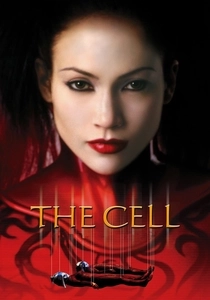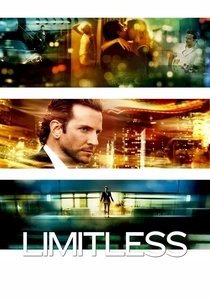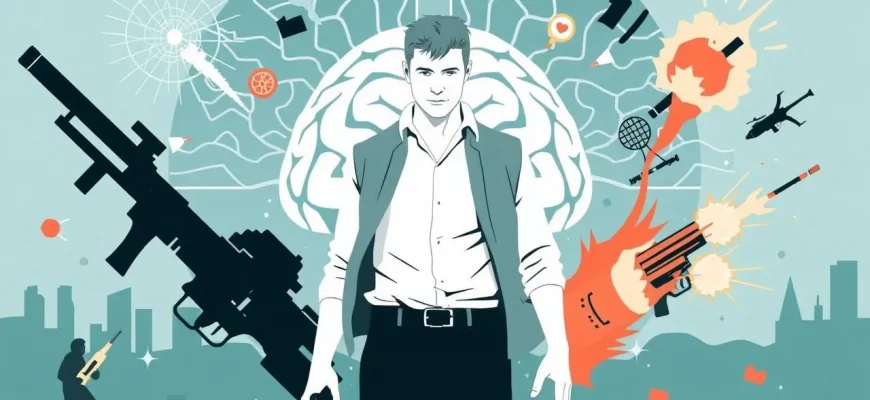Are you ready to dive into the thrilling intersection of action and neurobiology? This curated list of films combines high-octane action sequences with the fascinating world of brain science, offering viewers not just adrenaline-pumping entertainment but also a glimpse into the complexities of the human mind. Whether it's through mind control, psychological warfare, or the enhancement of human capabilities, these films explore the potential and perils of neurobiology in ways that are both captivating and thought-provoking.

Brainstorm (1983)
Description: Scientists develop a device that records and plays back human experiences, leading to ethical and psychological dilemmas in this early exploration of neurobiology in film.
Fact: The film was directed by Douglas Trumbull, known for his visual effects work on films like "2001: A Space Odyssey." The technology depicted was ahead of its time, foreshadowing virtual reality.
 Watch Now
Watch Now 
Dark City (1998)
Description: This neo-noir science fiction film explores memory manipulation and identity through an action-packed narrative, making it a compelling watch for neurobiology enthusiasts.
Fact: The film's director, Alex Proyas, was influenced by German Expressionism, which is evident in the film's dark, stylized visuals.
 Watch Now
Watch Now 
The Matrix (1999)
Description: While not strictly about neurobiology, "The Matrix" explores themes of reality, consciousness, and the manipulation of the human mind, making it a fitting inclusion in this list.
Fact: The film's concept of "bullet time" revolutionized action sequences in cinema. The Wachowskis spent years developing the idea, influenced by various philosophical and cyberpunk sources.
 Watch Now
Watch Now 
The Cell (2000)
Description: A psychologist enters the mind of a comatose serial killer to save his latest victim, showcasing the potential of neurobiology in criminal psychology.
Fact: The film's surreal visual effects were groundbreaking at the time, using a combination of practical effects and CGI to depict the inner workings of the mind.
 Watch Now
Watch Now 
The Bourne Identity (2002)
Description: Jason Bourne's journey to rediscover his identity involves memory manipulation and psychological warfare, making it a unique blend of action and neurobiology.
Fact: The film's fight choreography was inspired by real-life CIA training techniques. Matt Damon did most of his own stunts, including the famous car chase scene.
 Watch Now
Watch Now 
The Manchurian Candidate (2004)
Description: A remake of the 1962 film, this version delves into mind control and political manipulation, offering a thrilling look at the psychological aspects of espionage.
Fact: The film features a scene where Denzel Washington's character uses a "trigger phrase" to control another, a concept rooted in real psychological experiments.
 Watch Now
Watch Now 
Limitless (2011)
Description: Eddie Morra's life changes when he takes a mysterious drug that allows him to access his full brain capacity. This film explores the consequences of cognitive enhancement through a thrilling narrative.
Fact: The film was adapted from the novel "The Dark Fields" by Alan Glynn. Bradley Cooper's character was originally written as a struggling writer, but the film changed his profession to a stockbroker.
 Watch Now
Watch Now 
Inception (2010)
Description: Christopher Nolan's masterpiece involves entering the subconscious to implant an idea, exploring the depths of the human mind through a heist-like narrative.
Fact: The film's dream-within-a-dream structure required complex planning, with the crew using a detailed "dream journal" to keep track of the layers. The spinning top used by Cobb was not a prop; it was Nolan's own personal item.
 Watch Now
Watch Now 
The Adjustment Bureau (2011)
Description: This film explores the idea of free will versus destiny through the lens of a mysterious organization that controls human actions, touching on themes of neurobiology and decision-making.
Fact: The film was inspired by a short story by Philip K. Dick, known for his explorations of reality and consciousness.
 Watch Now
Watch Now 
Lucy (2014)
Description: In this mind-bending action thriller, a woman accidentally gains access to 100% of her brain capacity, leading to extraordinary abilities. The film delves into the concept of human potential and the untapped power of the mind.
Fact: Scarlett Johansson underwent extensive training to portray the physical and mental transformation of her character. The film was inspired by a myth that humans only use 10% of their brains.
 Watch Now
Watch Now 








